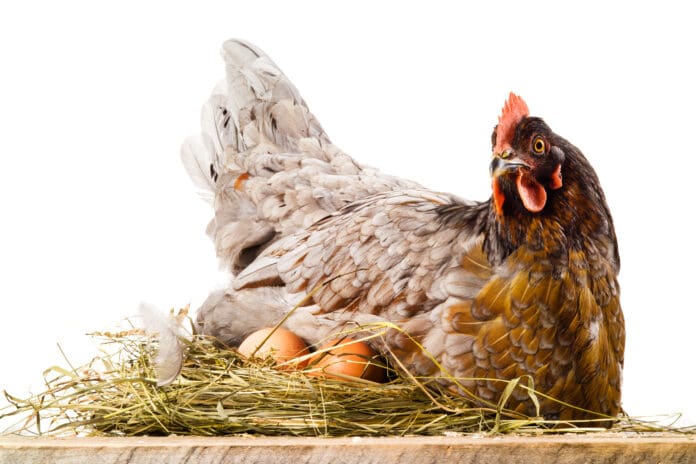The River City has something to crow about.
DeBaryites who want chickens as pets or a food source may now legally keep them — under certain conditions.
With a unanimous vote, the City Council Sept. 21 legalized chickens and ducks in large-lot neighborhoods zoned RA (Rural Estate) or RR (Rural Residential). Such lots are at least 1 acre.
“We’re talking about people who want chickens and people who want eggs,” Council Member William Sell said.
Besides the zoning, other main points of DeBary’s chicken ordinance are:
— Chickens or ducks are not allowed to roam free from the premises of their owner’s home.
— Owners of chickens and ducks must keep them safe from rodents and predators.
— While chickens and ducks are allowed on the properties zoned for them, other fowl are still prohibited inside DeBary’s city limits, notably geese, turkeys, peacocks, peahens and pigeons.
— The size of the chicken coop per home is limited to 120 square feet. Those who build a chicken coop of 120 square feet must obtain a building permit from City Hall. Chicken keepers may opt for smaller coops, such as two 60-square-foot structures or three 40-square-foot ones, without having to secure a building permit.
— Each chicken must have at least 3 square feet of coop space.
— The coop space effectively limits the size of the flock that may be kept. Thus, the total square footage of the coop or coops, divided by 3, sets the limit of fowl. If, for example, an urban farmer has 120 square feet of coop space, he/she may keep as many as 40 chickens or ducks. That prospect got Vice Mayor Phyllis Butlien’s attention.
“I don’t have a problem with a number, but 40 or 50 is too much,” she said. “We’re making it easier to have chickens than it is to have dogs and cats.”
— The “small-scale sale” of eggs or fowl is permitted, as long as it is noncommercial. This means owners of chickens or ducks may sell eggs or birds, as long as their sales total no more than $600 per year.
“Where does the $600 come from? It comes from the IRS [Internal Revenue Service] regulations,” Mayor Karen Chasez said.
If the sale of eggs or chickens or ducks exceeds the $600 limit, the activity then becomes a business, and the money taken in should be reported to the IRS for income-tax purposes, City Manager Carmen Rosamonda said.
Before the council passed the ordinance on second and final reading, there was a call to allow domesticated fowl to be kept in standard subdivisions.
“I’m in support of expanding chickens to smaller lots,” Lana Massaro, M.D., told the elected body.
That may come later, city leaders said, reminding the audience the ordinance will be reviewed next year and possibly revised.
Council Member Pat Stevenson urged her colleagues to consider allowing DeBaryites to keep other birds, especially quail and pigeons.
“Quail are smaller and quieter than chickens,” she said.
That suggestion did not fly.
“You’ve got to start somewhere,” Rosamonda said. “If you want to add other animals, you can always add them later.”
The vote to approve the chicken ordinance was 5-0.
The ordinance allowing chickens to be kept in DeBary’s larger-lot neighborhoods came after Chasez noted earlier this year that several of the city’s residents already have chickens, despite an ordinance forbidding the activity. No one knows how many homes in DeBary had chickens then, and no one knows how many small-fry poultry farmers are in DeBary now.
Nor is the City Council likely to obtain an accurate number, as the new ordinance does not provide for the city to issue permits simply to keep chickens or ducks.
